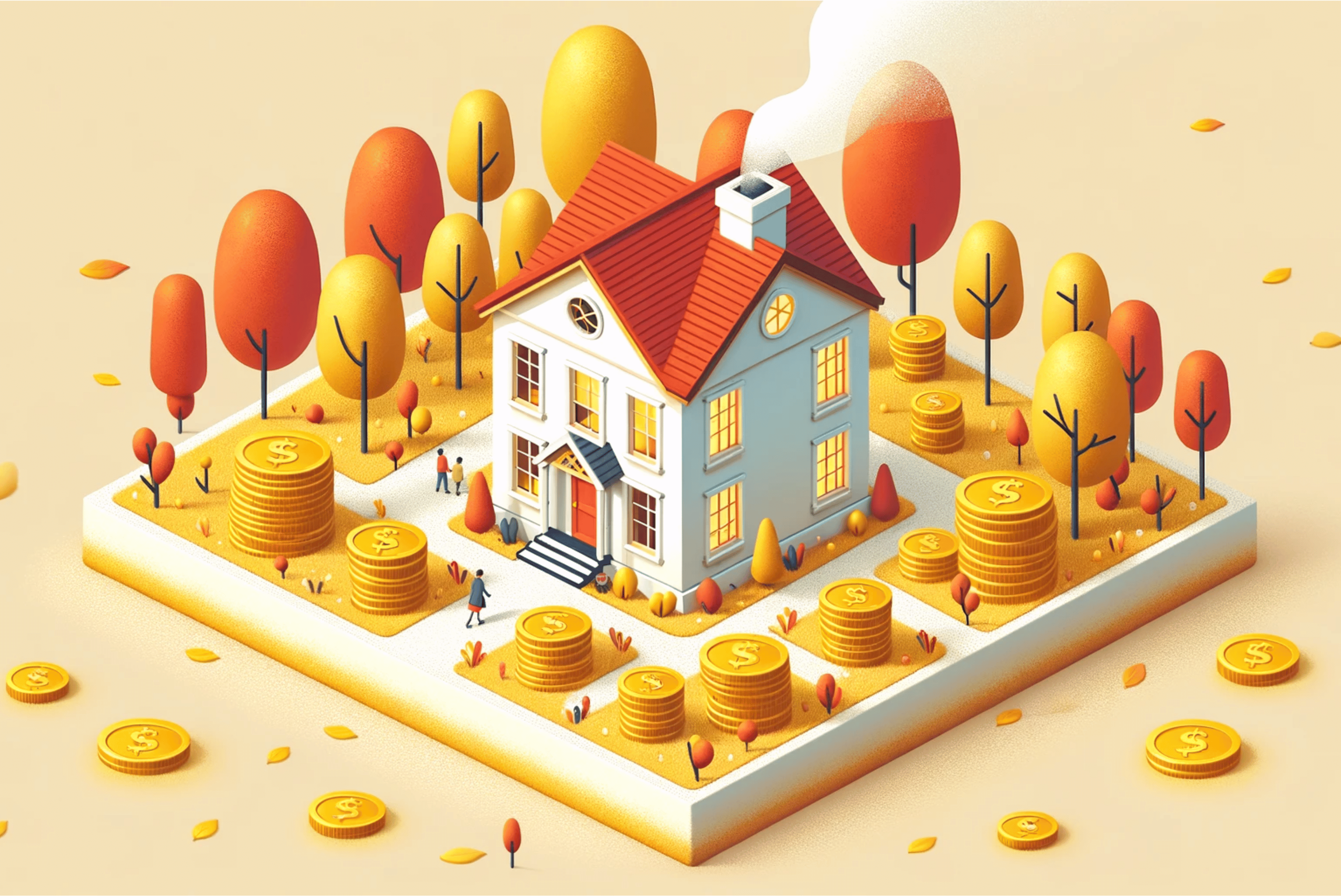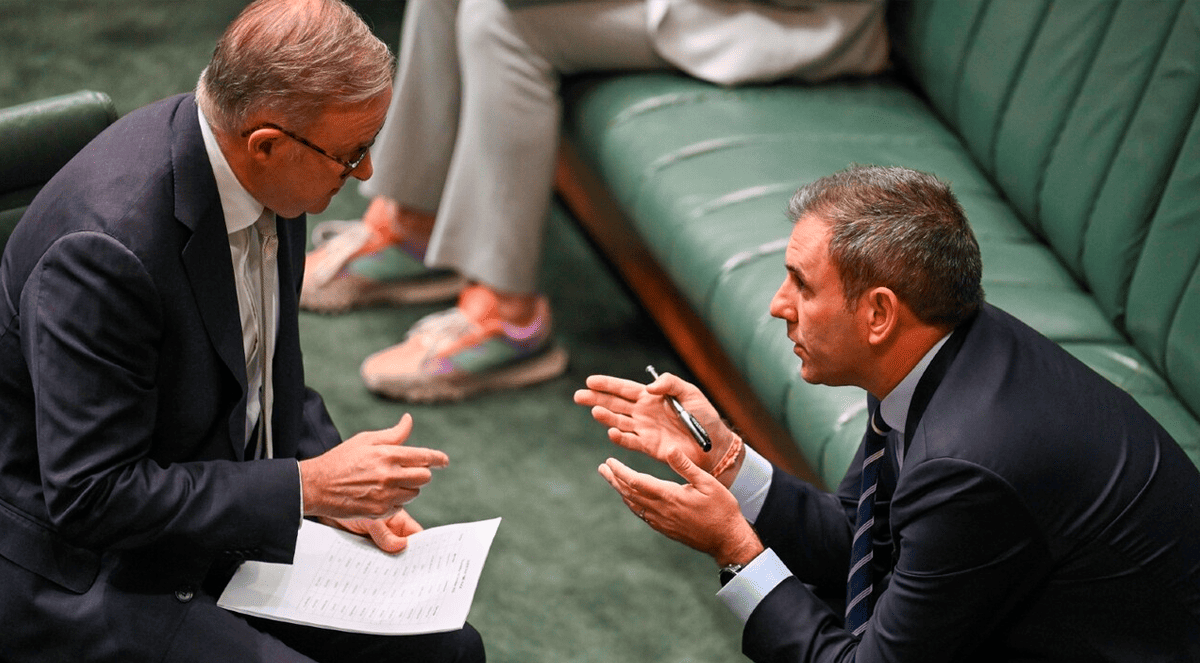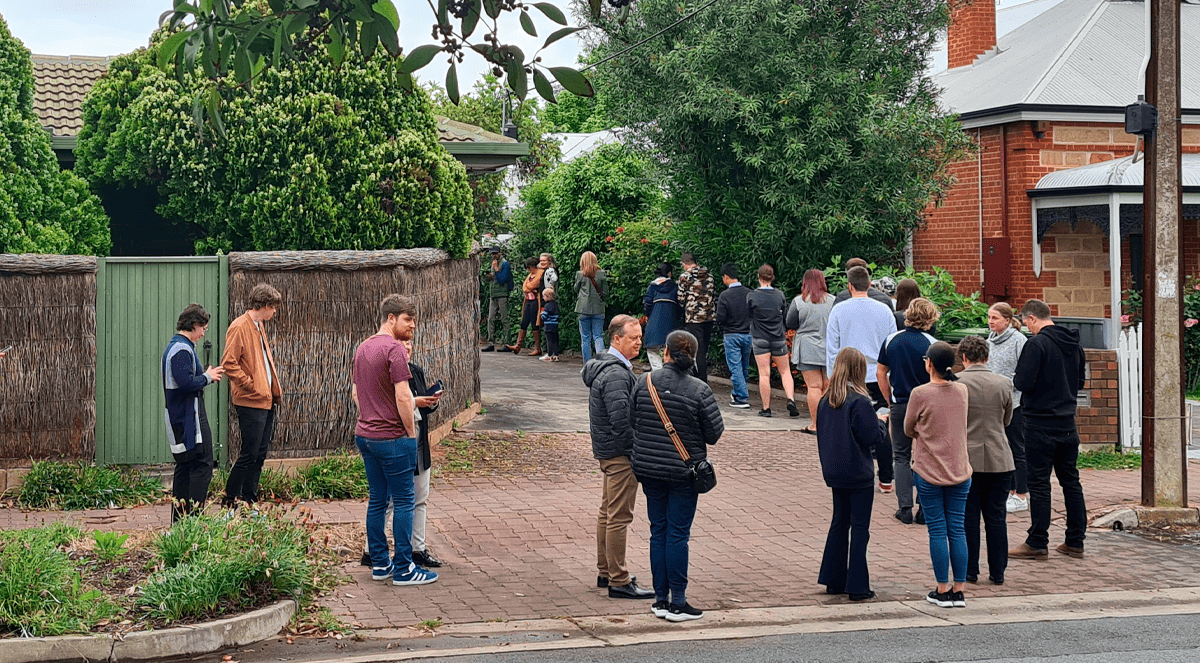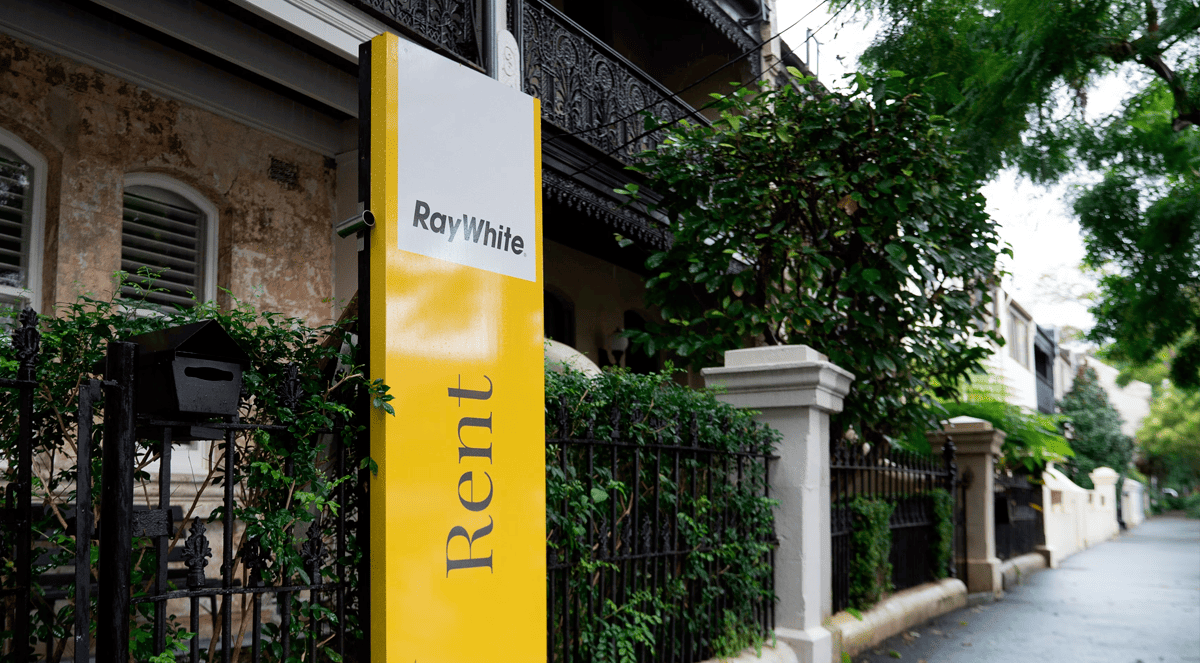Features > Property Education > Investment Tips
House or Apartment? Which Property Type is the best kind of Investment?

You’ve made the decision to invest in property, but now comes the decision of what kind of property to purchase – an investment apartment or a house?
Ultimately, it comes down to individual circumstances, location and investment goals.
Each property type has its own pros and cons, but to make the right decision it’s important to get clear on your own objectives first.
Then you can start to consider all the other variables that make a specific property type a solid investment decision, and which one will benefit you the most.
In this two-part series, we’ll go over the pros and cons of buying both an investment apartment and an investment house.
Here are the pros and cons of buying an investment apartment.
Pros of buying an investment apartment Lower entry cost
Buying an apartment as an investment is much more achievable for most, with a lower entry cost than buying a house.
This also means that investors aren’t forced to buy in low growth, high-risk areas just to afford the dwelling.
There are many capital city suburbs where affordable apartments offer healthy rent yields, and promising growth, without hefty entry prices that require large mortgages.
Investment apartments are a great way to get a foot in the door, without risking cash flow when positive gearing is achieved.
Greater rent yields
Because the price of an apartment is substantially lower than a house, there’s greater potential for the apartment to generate better rental yields.
Rental yield is ultimately the difference between what the property generates per week as rental income, and what your overall expenses are to own the property.
The cheaper entry cost means the rent is generally higher as a percentage of the value of the property, compared to houses.
Achieving a healthy rental yield can essentially give an investor access to greater cash flow, creating weekly profit.
Investment apartments are cheaper to maintain
Apartments are generally cheaper to maintain than houses, with smaller floor space and smaller outdoor spaces to upkeep.
Apartments are also under strata title, which means that some maintenance costs are covered by the fees paid to strata and body corporate.
Things like external painting jobs and landscaping of common areas are generally covered, but it’s best to check with the specific strata company.
High demand – especially with affordability crisis
Apartments in inner city suburbs, conveniently located close to public transport, offices, universities and schools are in high demand.
But even more so in current times, with rents experiencing record high increases over the past 12 months, off the back of limited supply.
Apartment rents have led the market in terms of rent increases, and this has led to a narrowing gap between apartment and house rents, down to just $39 a week as of June.
As renters are desperately searching for the most affordable housing option, apartments continue to be in high demand, and will likely remain in that state with record numbers of migrants arriving in the next financial year.
Potential to expand portfolio
The lower cost of purchasing an apartment and higher rental yield means that an investor will likely leave themself room for further investment in the near future.
This is because they aren’t reducing their own borrowing capacity by taking out larger mortgages that won’t be fully covered by rental income.
Instead, an apartment is easier to achieve positive or neutral gearing and therefore an unchanged or improved cash flow will benefit borrowing power, allowing an investor to expand their portfolio.
In some instances, the cost of an apartment is half that of a house, so an investor can acquire two apartments for the cost of one house, diversifying their portfolio.
Cons of buying an investment apartment Strata fees
All owners of apartments and townhouses are subject to paying strata fees.
These vary, and can cost anywhere from 0.3 percent of the property value to 1.2 percent. Larger apartments and townhouses will likely incur larger strata fees, as well as new complexes with pools and elevators, and older apartments that need regular maintenance.
There is an upside to strata fees however, with investors able to claim them as tax deductions.
Subjected to body corporate rules
Owners of apartments are also subjected to rules set out in the strata plan, called by-laws.
These cover all kinds of things, like noise, pets, smoking, and what owners can do cosmetically to the exterior of their apartment or townhouse.
This can be a downfall for investors if rules are deemed by prospective tenants to be overly stringent, or if there are renovations they would like to do that require the approval of the body corporate.
Slower capital growth
Historically, apartments haven’t typically seen the same capital growth as houses have, due to the rapid appreciation of land value that houses benefit from.
But with that said, Australia’s current housing crisis has resulted in some different trends emerging from the market, like the outperformance of units in the rental sector compared to houses, and the rapid rises in apartment values.
In the three months to May, apartment values rose 1.4 percent across the capitals, matching the growth in houses, according to CoreLogic, as reported by AFR.
And while house prices declined by 8.9 percent in the recent downturn, apartments only fell by 4.9 percent, proving to be more resilient.
With Australians in desperate need of affordable housing, apartment living is becoming increasingly desired, and demand is at an all time high.
So it might be the perfect time to invest in an apartment, if this strategy aligns with your personal financial goals.
Next, we’ll discuss the pros and cons of buying an investment house.
Pros of buying a house as an investment
There are many benefits to owning a stand alone home, and most relate to capital growth. But there are other elements that make this type of property an enticing investment option. Let’s look at the pros.
No body corporate
One of the perks of purchasing a house as an investment property is that you won’t be required to pay strata fees, and abide by by-laws, as there will be no body corporate.
Some investors view the idea of body corporate as a hassle, or an unnecessary expense so this could be seen as a pro for some.
However, body corporate can help to take the hassle of external maintenance out of the picture.
Strata fees are collected to go towards pool and facility maintenance – meaning an investor doesn’t have to worry about taking care of most amenities themselves.
A house does allow you to factor in fewer guaranteed expenses, but it could mean more unexpected expenses if the house has a pool and facilities that need to be maintained.
Land value
This is the big one.
Houses benefit from land value appreciation while apartments tend to miss out on this.
Land is a naturally limited resource that appreciates in value, and as seen in recent times, at quite a rapid rate.
Areas with limited land supply often see house prices appreciating at a faster rate than areas with a lot of available evergreen land ready for development.
With that said, new and upcoming areas often have cheaper land and home packages that will grow in value overtime, as available land is bought up, and infrastructure is built as demand increases.
Population growth also contributes to increased land value, as more people need a place to live, adding demand to the existing and limited supply of land.
Better capital growth
We say this with hesitancy, as Australia’s housing market has been subjected to changing demands over recent years.
Historically, houses have seen better capital growth in the long run, in terms of the national average.
However, apartments have been clocking unprecedented growth as Australia’s housing crisis struggles to provide homes to a surging population.
For this reason, in the three months to May, apartment values rose 1.4 percent across the capitals, matching the growth in houses, as reported by AFR.
And while house prices declined by 8.9 percent in the recent downturn, apartments only fell by 4.9 percent, proving to be more resilient.
With Australians in desperate need of affordable housing, apartment living is becoming increasingly desired. And a worthy contender to houses in the scheme of capital growth.
With that said, houses have generally offered better long term growth, but that could be set to change.
Greater potential for increasing rental income with the addition of a granny flat
Houses can offer opportunities for increasing rental income, with the potential to add an extension or a granny flat.
This is dependent on land size and subject to approval, but the addition of a granny flat is becoming increasingly popular to generate additional rental income through extra tenants.
If this is part of your investment strategy, it’s important to research approval processes and criteria to determine if a particular property is eligible for a granny flat.
Cons of buying a house as an investment
There are always downsides to any investment strategy, it’s just a matter of weighing them against the benefits. Here are the cons of buying a house as an investment property, compared to an apartment.
Higher initial output might mean lower yield
Houses typically cost more than apartments, and this can impact their potential rental yield.
This is simply because rental yield is calculated as a percentage of the property’s value, and as houses are often substantially more expensive, rents don’t always reflect this, and therefore rental yield can sometimes be affected.
With that said, houses do generally attract higher rents, especially in quality locations close to schools and close to CBD’s, so the potential for a healthy rental yield is definitely still there.
Could exhaust your borrowing capacity
Because of the higher cost of owning a house compared to an apartment, a house could potentially exhaust your borrowing power more quickly.
The higher buy-in costs means you’ll likely have a larger mortgage, and that could adversely affect your borrowing capacity if you fail to achieve positive gearing.
Speaking to a Freedom property specialist can help you to create a strategy that allows you to buy an investment house, with the intention of using it to expand your portfolio, rather than exhaust it.
More expensive to maintain
Houses are typically more expensive to maintain than apartments, simply because of their size and features.
With more floor space, sometimes more appliances and often larger outdoor spaces, the costs to maintain a house are usually more than the cost to maintain an apartment.
There’s also the absence of strata fees that are pooled to maintain amenities in apartments, meaning that if any large maintenance repairs are required for pools, or garage doors for example, they fall under the sole responsibility of the homeowner.
Higher council rates
The council rates involved in owning a house are usually more expensive than those that apartment owners are required to pay.
Simply put, it’s because of the higher value of land that the house occupies. Including this in your investment strategy will allow you to plan ahead, and decide how much rent you need to achieve to make this a profitable investment.
Both apartments and houses have the potential to create passive income and secure your financial future, but the most important considerations come down to the location, purpose of the property, geographic demographics, and wider investment strategy.
With so many moving parts, what’s most important is that you get professional advice before embarking on any investment journey. A Freedom property specialist can help you devise a plan tailored to your financial needs, to achieve the best outcome. Book a strategy session today.
This article is general in nature. Readers should always seek their own professional advice that takes into account their own personal circumstances before making any financial decisions.
Stay Up to Date
with the Latest Australian Property News, Insights & Education.




.png?width=292&height=292&name=Copy%20Link%20(1).png)
 SIGN UP FOR FREE NEWSLETTER
SIGN UP FOR FREE NEWSLETTER

.png)









%20Scott%20Kuru%20DPU%20141.jpg?width=1920&height=1080&name=The%20Senate%20Just%20Exposed%20Australias%20Biggest%20$80%20Billion%20Housing%20Fraud%20(Inquiry%20Launched)%20Scott%20Kuru%20DPU%20141.jpg)




%20Scott%20Kuru%20DPU136.jpg?width=1920&height=1080&name=Aussies%20Just%20Got%20Hit%20With%20Double%20Taxes%20on%20Everything%20(This%20Has%20Gone%20Too%20Far)%20Scott%20Kuru%20DPU136.jpg)


%20Scott%20Kuru%20DPU%20133.jpg?width=1920&height=1080&name=JUST%20IN%20Something%20Major%20Just%20Flipped%20Australia%E2%80%99s%20Property%20Market%20for%202026%20(No%20One%20Saw%20This%20Coming)%20Scott%20Kuru%20DPU%20133.jpg)


.jpg?width=1920&height=1080&name=Rental%20Prices%20At%20Record%20Highs%20And%20Vacancy%20Rates%20At%20All%20Time%20Lows%20(New%20Data%20Reveals).jpg)
%20%20DPU%20EP%2014.jpg?width=1920&height=1080&name=Investors%20Shutting%20Out%20First%20Home%20Buyers%20(Investors%20At%20Record%20Highs)%20%20DPU%20EP%2014.jpg)

.jpg?width=1920&height=1080&name=Darwins%20Property%20Market%20Boom%20or%20Dangerous%20Gamble%20(REVEALED).jpg)

.jpg?width=1920&height=1080&name=The%20RBA%E2%80%99s%20Rate%20Cut%20Could%20Explode%20House%20Prices%20(Here%E2%80%99s%20Why).jpg)








.jpg?width=1920&height=1080&name=Warning%2c%20You%20Might%20Be%20Facing%20Higher%20Taxes%20Soon%20(1).jpg)




.png?width=1920&height=1080&name=Rate%20Drops%20Signal%20BIGGEST%20Property%20Boom%20in%20DECADES%20(1).png)

.jpg?width=1920&height=1080&name=Labor%20vs%20Liberal%20These%20Housing%20Policies%20Could%20Change%20the%20Property%20Market%20Forever%20(1).jpg)
.jpg?width=1920&height=1080&name=QLD%20Slashes%20Stamp%20Duty%20Big%20News%20for%20Investors%20%26%20Home%20Buyers%20(1).jpg)
.jpg?width=1920&height=1080&name=Trump%20Just%20Slapped%20Tariffs%20%E2%80%93%20Here%E2%80%99s%20What%20It%20Means%20for%20Australia%20(1).jpg)
.jpg?width=1920&height=1080&name=Federal%20Budget%202025%20More%20Debt%2c%20No%20Housing%20%E2%80%93%20Here%E2%80%99s%20What%20You%20Need%20to%20Know%20(1).jpg)
.jpg?width=1920&height=1080&name=Australias%20Housing%20Crisis%20is%20about%20to%20get%20MUCH%20Worse%20(New%20Data%20Warns).jpg)
%20(1).jpg?width=1920&height=1080&name=Australias%20RENTAL%20CRISIS%20Hits%20ROCK%20BOTTOM!%20(2025%20Update)%20(1).jpg)
%20(1).png?width=1920&height=1080&name=Is%20Adelaide%20Still%20a%20Good%20Property%20Investment%20(2025%20UPDATE)%20(1).png)
.jpg?width=1920&height=1080&name=RBA%20Shocks%20with%20Rate%20Cuts!%20What%E2%80%99s%20Next%20for%20Property%20Investors%20(1).jpg)
%20(1).jpg?width=1920&height=1080&name=I%20Predict%20The%20Feb%20Rate%20Cut%20(My%20Price%20Growth%20Prediction)%20(1).jpg)
.png?width=1920&height=1080&name=Why%20Property%20Prices%20Will%20Rise%20in%202025%20Market%20Predictions%20(1).png)
.jpg?width=1920&height=1080&name=Why%20Investors%20Are%20Choosing%20Apartments%20Over%20Houses%202%20(1).jpg)
.jpg?width=1920&height=1080&name=Why%20Rate%20Cuts%20Will%20Trigger%20A%20Property%20Boom%20(1).jpg)
.jpg?width=1920&height=1080&name=Retire%20On%202Million%20With%20One%20Property%20(Using%20SMSF).jpg)
.jpg?width=1920&height=1080&name=4%20Reasons%20Why%20You%20Should%20Invest%20in%20Melbourne%20Now%20(1).jpg)
%20(1).jpg?width=1920&height=1080&name=Old%20Property%20vs%20New%20Property%20(Facts%20and%20Figures%20Revealed)%20(1).jpg)
%20(1).jpg?width=1920&height=1080&name=Will%20The%20New%20QLD%20Govt%20Create%20a%20Property%20Boom%20or%20Bust%20(My%20Prediction)%20(1).jpg)
%20Scott%20Kuru%20(1).jpg?width=1920&height=1080&name=Inflation%20Hits%20Three-Year%20Low%20(Will%20RBA%20Cut%20Rates%20Soon)%20Scott%20Kuru%20(1).jpg)
.jpg?width=1920&height=1080&name=How%20to%20Buy%20Investment%20Property%20Through%20SMSF_%20The%20Ultimate%20Guide%20(1).jpg)
.jpg?width=1920&height=1080&name=Victoria%20Slashes%20Stamp%20Duty%20Melbourne%20Set%20to%20Boom%20Scott%20Kuru%20(1).jpg)
.png?width=1571&height=861&name=Are%20Foreign%20Buyers%20Really%20Driving%20Up%20Australian%20Property%20Prices%20(1).png)
.jpg?width=1920&height=1080&name=The%20Single%20Factor%20That%20Predicts%20Property%20Growth%20Regions%20(1).jpg)
%20Scott%20Kuru%20(1).jpg?width=1920&height=1080&name=My%20Prediction%20On%20Rates%20%26%20Negative%20Gearing%20(Market%20Crash)%20Scott%20Kuru%20(1).jpg)

-1.png?width=1920&height=1080&name=Major%20Banks%20Cut%20Rates%20Will%20RBA%20Follow%20Suit%20(Sept%20Rate%20Update)-1.png)
%20Scott%20Kuru-1.png?width=1920&height=1080&name=Rate%20Cut%20Coming%20What%20New%20Zealands%20Move%20Means%20for%20Australia%20(Sept%20Prediction)%20Scott%20Kuru-1.png)
%20(1).jpg?width=1920&height=1080&name=Buy%20when%20the%20interest%20rates%20are%20high!%20(Why%20you%20must%20buy%20now!)%20(1).jpg)
.jpg?width=1920&height=1080&name=Carms_Revised%20Taxes%20Due%20Aug%209%20YT%20Thumbnail02%20(1).jpg)
.jpg?width=1920&height=1080&name=Carms_Too%20Little%20Too%20Late%20Aug%207%20YT%20Thumbnail01%20(1).jpg)









.jpg?width=1920&height=1080&name=Carms_Rate%20Drop%20In%20July%20Jun%2010%20YT%20Thumbnail02%20(1).jpg)
.jpg?width=1920&height=1080&name=Carms_Own%20a%20Property%20V6%20Jun%205_YT%20Thumbnail%20(1).jpg)









.png?width=1920&height=1080&name=Artboard%201%20(3).png)






.jpg?width=1920&height=1080&name=YT%20thumbnail%20%20(1).jpg)

